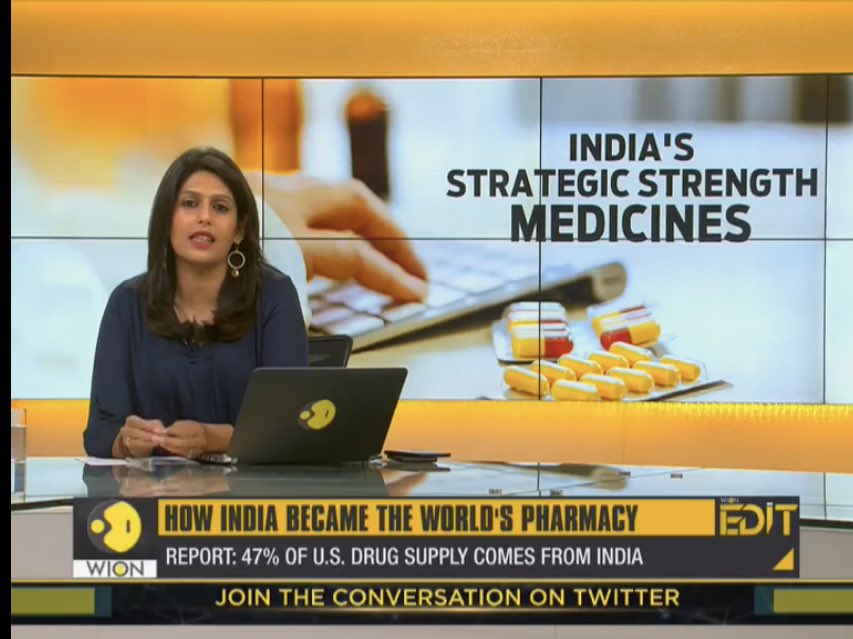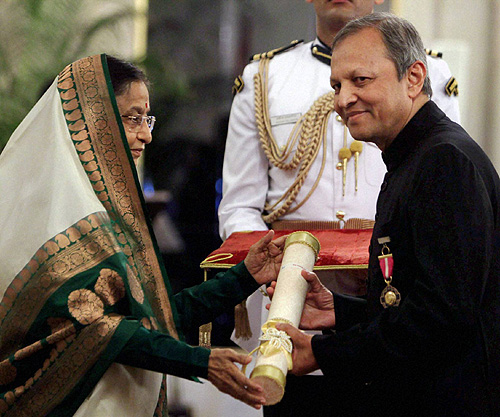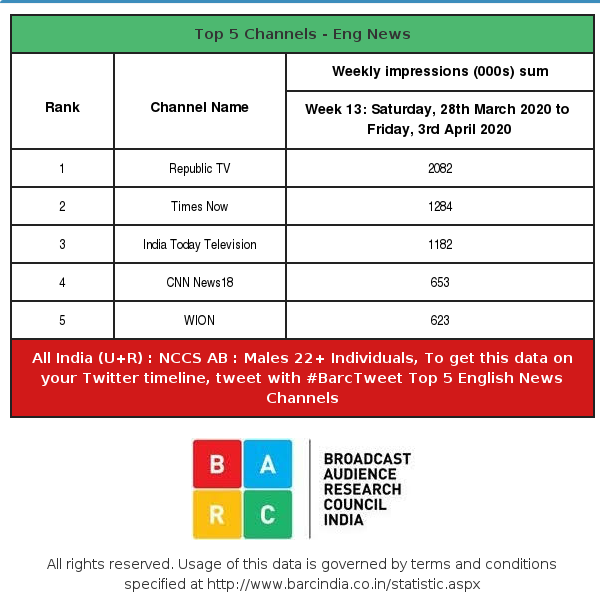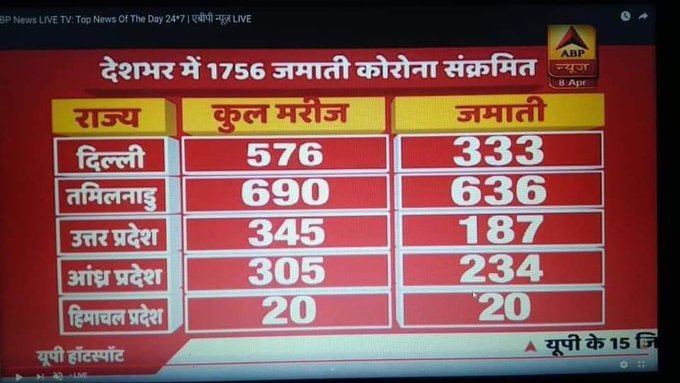What is Strategic Reserves?
Is it oil ?
Is it Missiles ?
No, it’s Medicines
India became the World Pharmacy
Well said @palkisu, @WIONews #Gravitas
“India’s Strategic Strength - Medicines”

but
India imports around 90 per cent of APIs used to make antibiotics, 66% of total API are imported from China.
COVID-19 exposes India’s dependence on China for active pharma ingredients
The novel coronavirus disease (COVID-19) pandemic has revealed India’s overdependence on China for active pharmaceutical ingredients (APIs) — also known as bulk drugs — defined by the World Health Organization as any substances used in finished pharmaceutical products.
India’s pharmaceutical industry is the third-largest in the world in terms of volume.
Two-thirds of the total imports of bulk drugs or drug intermediaries, however, come from China, DV Sadananda Gowda, the Union minister for Chemicals and Fertilizers, told the Lok Sabha on February 2020.
India imports around 90 per cent of APIs used to make antibiotics, according to Ashok Madan, the executive director of the Indian Drug Manufacturer Association.
The fear of not receiving the required number of APIs from China was so high that policy makers scrambled to order several measures just before the 21-day nationwide lockdown was announced.
The Union government announced the constitution of a committee under the chairmanship of Eshwara Reddy, Joint Drugs Controller, Central Drugs Standard Control Organization (CDSCO) in March to address the issue of drug security in the country.
It also announced a package to revive the API industry in the country.
The irony in these measures emerged from the fact that the government understood the importance of reviving the industry years ago. National Security Advisor Ajit Doval had warned in 2014 that Chinese dependence of APIs could be a national security threat.
The UPA government had constituted a committee under VM Katoch in 2013 on this issue. The report, submitted in 2015, suggested several measures including the establishment of exclusive parks.
A draft policy had also emerged in 2017 over this. No progress was, however, made on this draft, with nothing changing on ground.
Indian manufacturers had to control pollution and be economically competitive at the same time, according to Reji K Joseph, an associate professor at the Institute for Studies in Industrial Development in New Delhi.
This was why the Indian industry lagged behind China, according to him.
India had exported APIs during the 1990s and was far ahead than China, according to Madan.
China strategically supported its core industry at a time when India had opened up its economy, with private players getting the freedom to either import or locally procure APIs based on economic viability.
The Chinese industry received huge state support, by getting almost no land cost, negligible financial cost, cheap electricity, water and labour and began to dump Penicillin G in India.
Chinese firms outperformed Indian manufacturers like Hindustan Antibiotic in the public sector and private sector enterprises like Torrent Pharmaceuticals Ltd, Alembic Pharma, Southern Petrochemical Industries Corporation Ltd and JK Pharmachem, that were engages in manufacturing Penicillin G.
Manufacturing units in the country still have an edge despite an increase in labour costs because of several reasons, including 10-12 per cent of subsidies in export given by the government that are untraceable, said Madan.
China allowed a relaxation in environmental norms till 2015, when the Beijing Olympics were organized, according to experts.
The first environmental facility inspection in China was conducted in 2015 in Hebei, China’s most-polluted province.
Approximately 150 API manufacturers in China shut their facilities in 2016-18, as a result, according to a white paper published by consultancy firm Beroe in July 2019.
Indian API firms have been under strict scrutiny for pollution, all this while.
The central pollution control board identified the API sector as one among 18 highly-polluting industries in the country.
The Indian industry was forced to follow stringent environmental regulation and fight red tape, according to Madan. The API sector was kept in the same grouping as other chemical industries, according to him.
This crisis led to a slowdown of the industry that found it easier to purchase APIs from China rather than investing in local industry.








